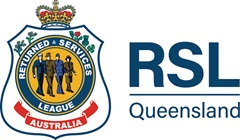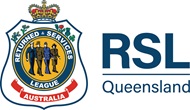
From history’s page to the Western Front
07 April 2024- ANZACspirit
- Ideas & info
Their forefathers were allies in World Wars I and II – hers in the Australian Imperial Force, his in the French resistance. Now, decades later, teenagers Sophie and Elann will journey to the Western Front, exploring their family and national histories as part of the Premier’s Anzac Prize.
Sophie Robertson and Elann Malot are two of the eight students chosen for the 2024 Premier’s Anzac Prize, which is presented by the Queensland Department of Education in partnership with RSL Queensland.
The prize is a once-in-a-lifetime opportunity: to research and retell untold soldiers’ stories, retrace ANZAC history on a guided tour of Europe, read eulogies for the fallen, and commemorate ANZAC Day near the battlefields of WWI.
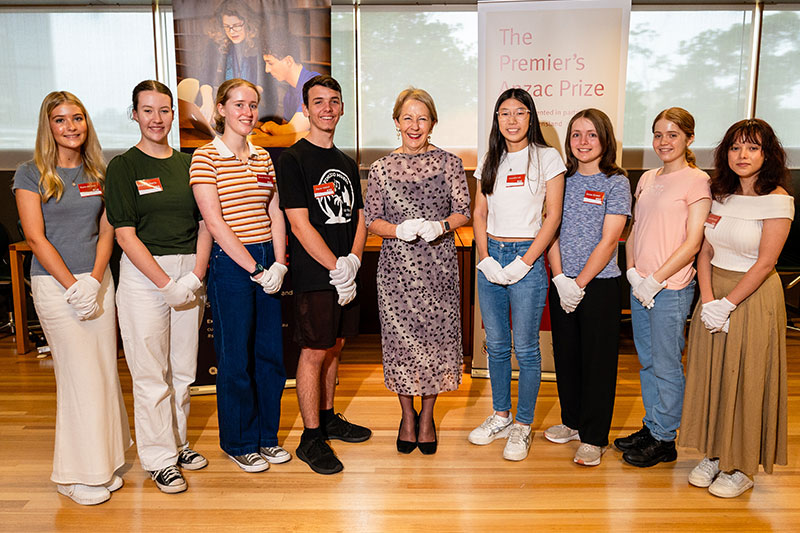
Recipients of the Queensland Premier's Anzac Prize with Queensland Minister for Education Hon Di Farmer MP (Center)
We spoke to Sophie and Elann about the stories they’ve discovered, their connection to the ANZAC legacy, and their upcoming pilgrimage.
Why did you apply for the Premier’s Anzac Prize?
Elann:
The Premier’s Anzac Prize was one of three national prizes we were offered to enter at school. It seemed the hardest of the three, but I was interested in the history behind it and decided to go with my gut and challenge myself. I was also excited for an opportunity to share the story of my great-grandpa.
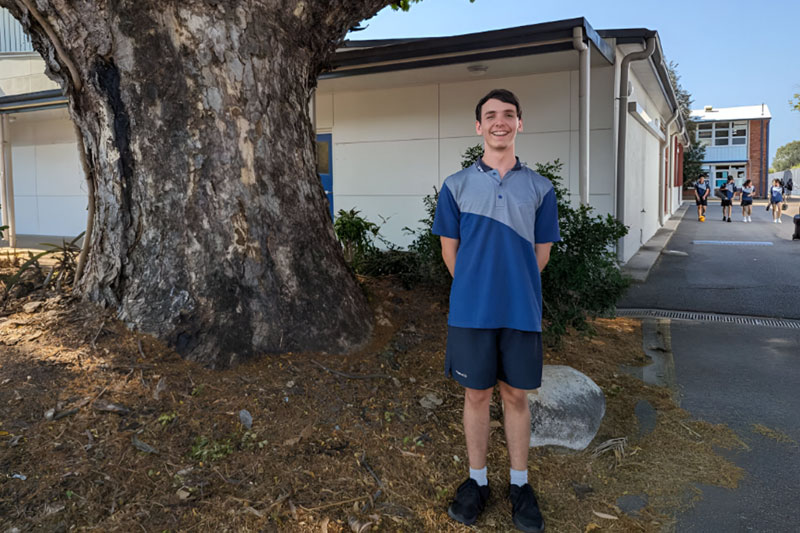
Elann Malot is an active Scout and recently received his Australian Scout Award. He aspires to be an aerospace engineer at NASA.
Sophie:
I wanted to learn more about my family's military history. When applying for the prize, I only knew about my great-grandfathers. With all the research tips I've been getting, I’ve found that I have quite a lot of great-great-uncles who were also in the World Wars.
It's been really eye-opening, because the people who've come before me basically helped shape who I am today.
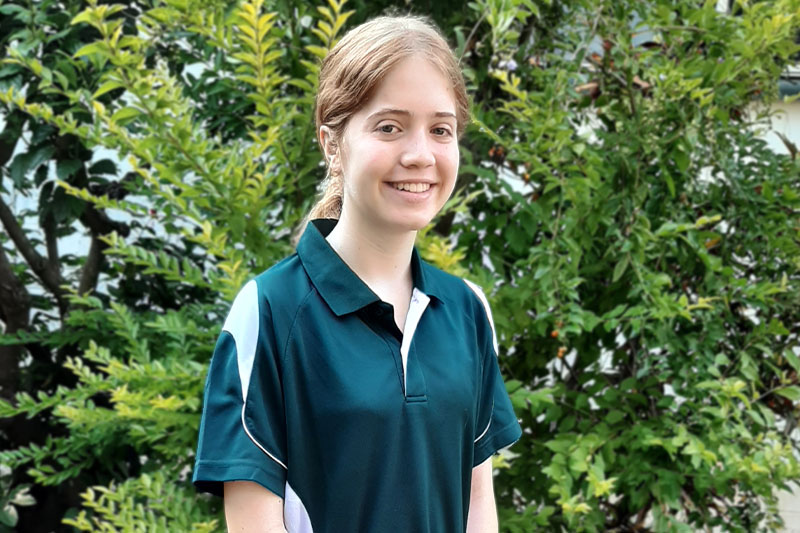
Sophie Robertson hopes to study aeronautical engineering and join the RAAF, working in disaster relief and Defence Space Command.
Tell us about your great-grandfathers’ involvement in the wars.
Elann:
My great-grandpa Marius was part of his local resistance in Saint-Lo in northern France from 1939 to 1945. He was married and a proud father of four kids. As he worked in telecommunications he couldn’t be drafted by the Germans, but using his unique position he was able to communicate valuable intelligence to the Allies about German positions and supplies.
When he was discovered by the Germans, he narrowly escaped execution and hid. When the Allies began the recapture of France, they bombed Saint-Lo, as it was a German railroad and communications hub. When Marius came back into town, a bomb had hit his home. He searched and asked for the whereabouts of his family, but to no avail. Even after this, he blamed the Germans and rejoined the resistance, and continues to be an inspiration for me every day.
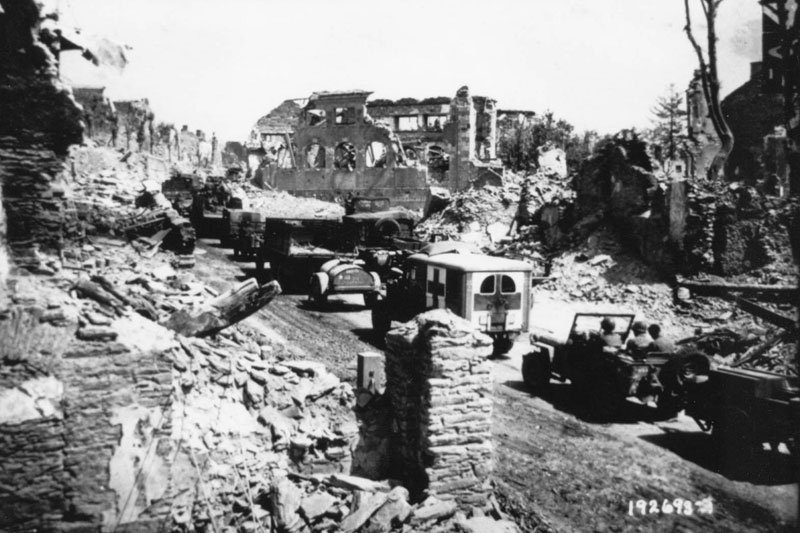
Image: NARA / Le Mémorial de Caen | American soldiers in Saint-Lo after the city was bombed
Sophie:
One of my paternal great-grandfathers, Harry Robertson, served in WWII and became a prisoner of war at Changi. He's quite lucky because when the Japanese surrendered, he was so malnourished he had to be aeromedically evacuated back to Australia; they didn't take him via ship. He never talked about it, according to my dad.
Dad's other grandfather, George Swanson, served in WWI. He went to Gallipoli and then to the Western Front. He was mustard gassed really badly, but he came home after the war. He had a horrible cough for the rest of his life, but he lived into his 90s. I think the war gave him a new perspective on life.
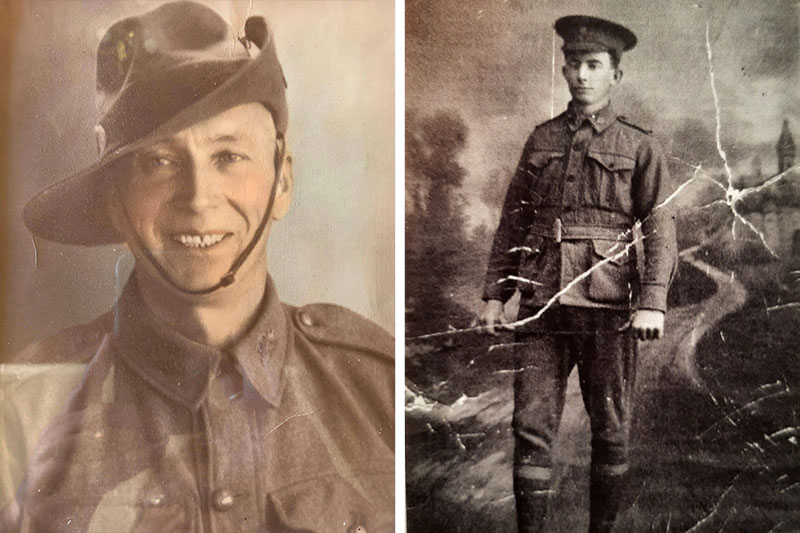
(L-R) Harry Robertson and George Swanson
Which soldiers are you researching?
Elann:
I have chosen to research Major William Craies and Captain Albert Jacka VC.
Major Craies was a brave and charismatic man who led his comrades with pride. He enlisted and fought at Gallipoli where after he was discharged for “disciplinary reasons”. He then re-enlisted and moved to France, where he led many battles. He fell after courageously leading his troops at Villers-Bretonneux.
Captain Jacka VC has one of the most renowned stories of all Australian soldiers, but I would like to focus on the details that no one knows, to really understand who he was as a person.
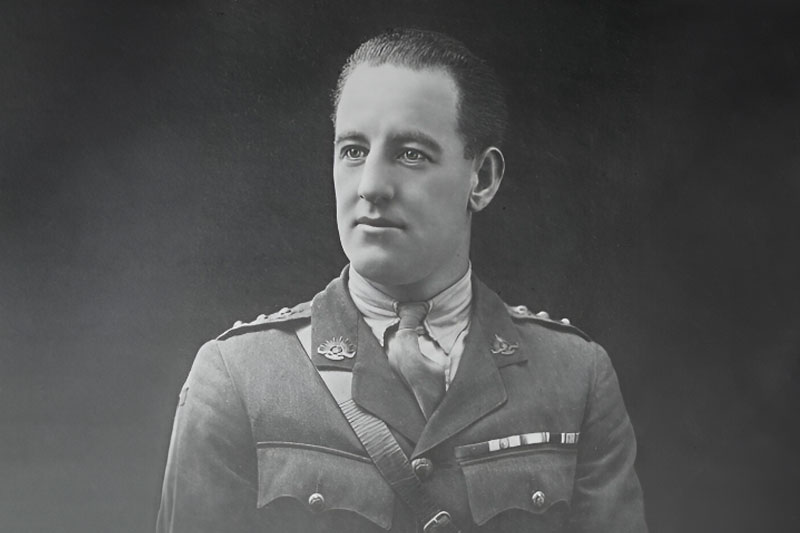
Captain Albert Jacka VC MC and Bar
Sophie:
I’m researching Lieutenant Robert Joseph Luxton, who was from Giru – where I live – and Private Garrett Swanson, who's my great-great-uncle.
Robert actually had previous military service in the Boer War; he was the 17th person to enlist for Australia. He was sadly killed in Villers-Bretonneux.
I didn't really know Garrett existed until after I applied for the prize, but his story's quite interesting.
Garrett was one of four brothers, including my great-grandfather, who served in WWI. He died in No Man's Land at the second battle for Bullecourt, at the age of 21.
It's very sad; they couldn't get to him because the machine gun fire was that intense. He was wounded, and if they had got to him quick enough, they would've been able to save him. But his cousin actually saw him and stayed with him in that shell hole for three days. Eventually Garrett died, and the cousin had to go to Britain for treatment.
When I read Robert’s and Garrett’s eulogies in Europe, I think I'll be quite emotional, because it means I can bring these stories that we see on paper to life. When researching, I feel some sort of connection towards them and some sort of grief that they had their lives ahead of them, and war just took that away. I think reading the eulogies will kind of help settle that grief.
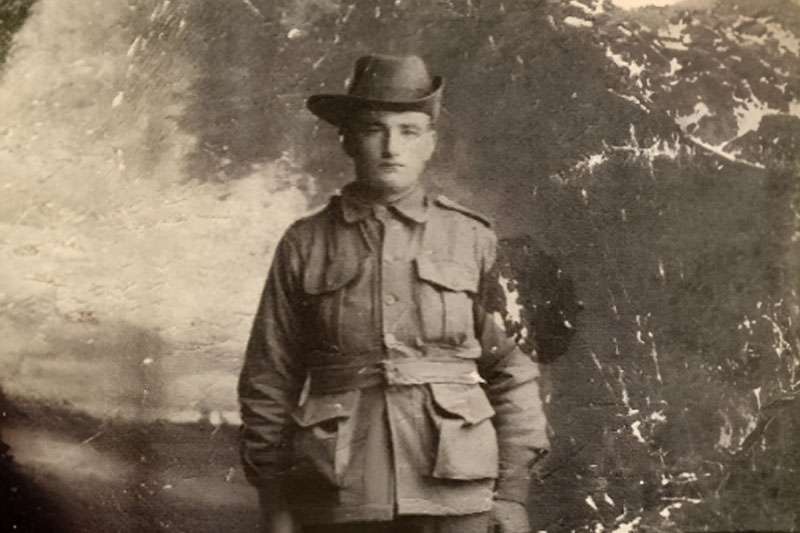
Private Garrett Swanson
Why do you think military history is important for young Australians?
Elann:
I go by the motto, ‘You must first understand the past, to make the decisions of the future’. War history has some valuable lessons to learn from; I believe it is important for young people especially, as they hold the future. It’s also important to connect with your history so that you understand your origins.
Sophie:
I think military history is important because it's helped shape Australia's identity. It's basically where the ANZAC spirit was born – mateship, endurance, courage and the rest are all values that we can carry into our everyday lives and are so integral because we need them to solve problems, like COVID and bushfires. We need to be able to rally together and persist in difficult times. That's something the ANZAC spirit has taught us, and definitely something young Australians can learn from.
You’re both actively involved in ANZAC Day ceremonies at home. How do you feel about commemorating ANZAC Day on the Western Front this year?
Elann:
I feel honoured to be able to commemorate ANZAC Day on the Western Front, and to commemorate the soldiers where they last stood.
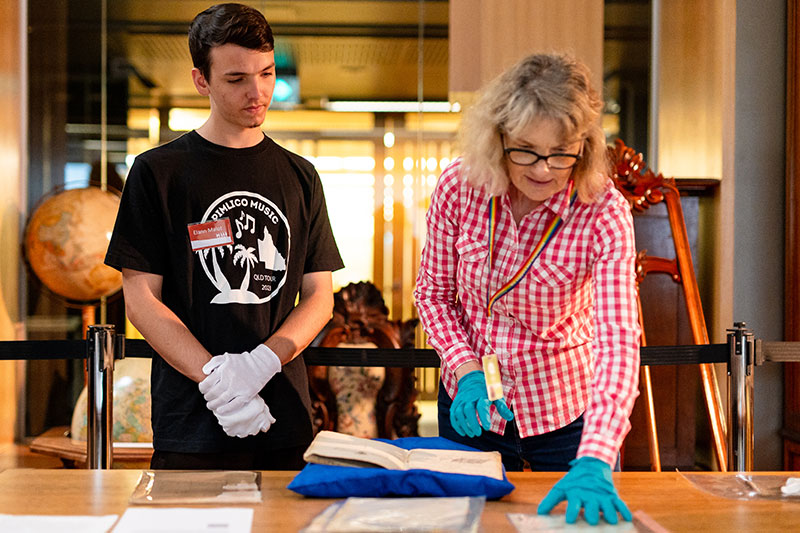
Elann Malot (L) looks over historical artifacts at the State Library of Queensland
Sophie:
I feel that it'll bring ANZAC Day more to life, because it's where many soldiers died and where our ANZAC spirit was shaped. I can bring what I learn over there back to Australia, which is great for my community.
It's great to see all different cultures, such as France and Australia, come together and remember these soldiers, and how they made the ultimate sacrifice for us.
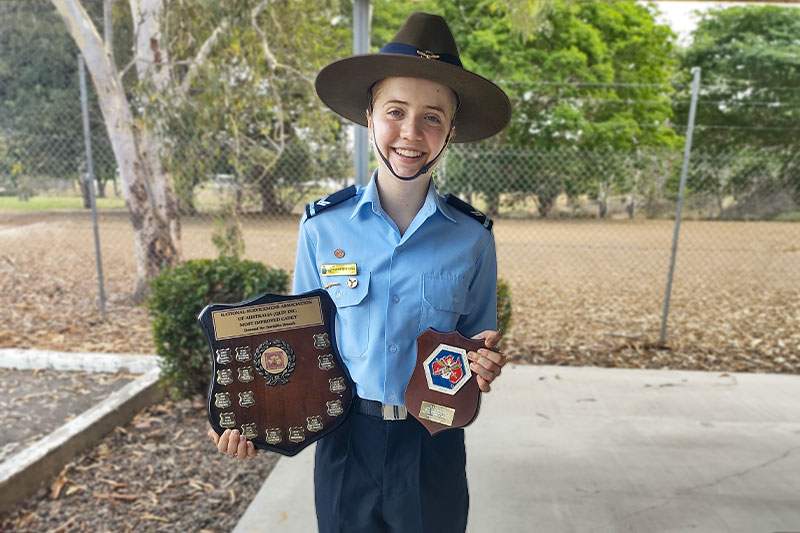
Sophie is a member of Australian Air Force Cadets 109 Squadron – Burdekin and regularly performs ANZAC Day catafalque party duties.
Help Elann and Sophie support Mates4Mates
This year’s prize recipients are raising funds to support Mates4Mates. To make a donation, visit the group’s fundraising page, select an amount and click the blue ‘Donate’ button.
Donate here
Learn more
The annual Queensland Premier’s Anzac Prize is open to Queensland high school students (in years 8 to 11) and teachers.
For more details, visit rslqld.org/premiers-anzac-prize.
Related News
Loading
